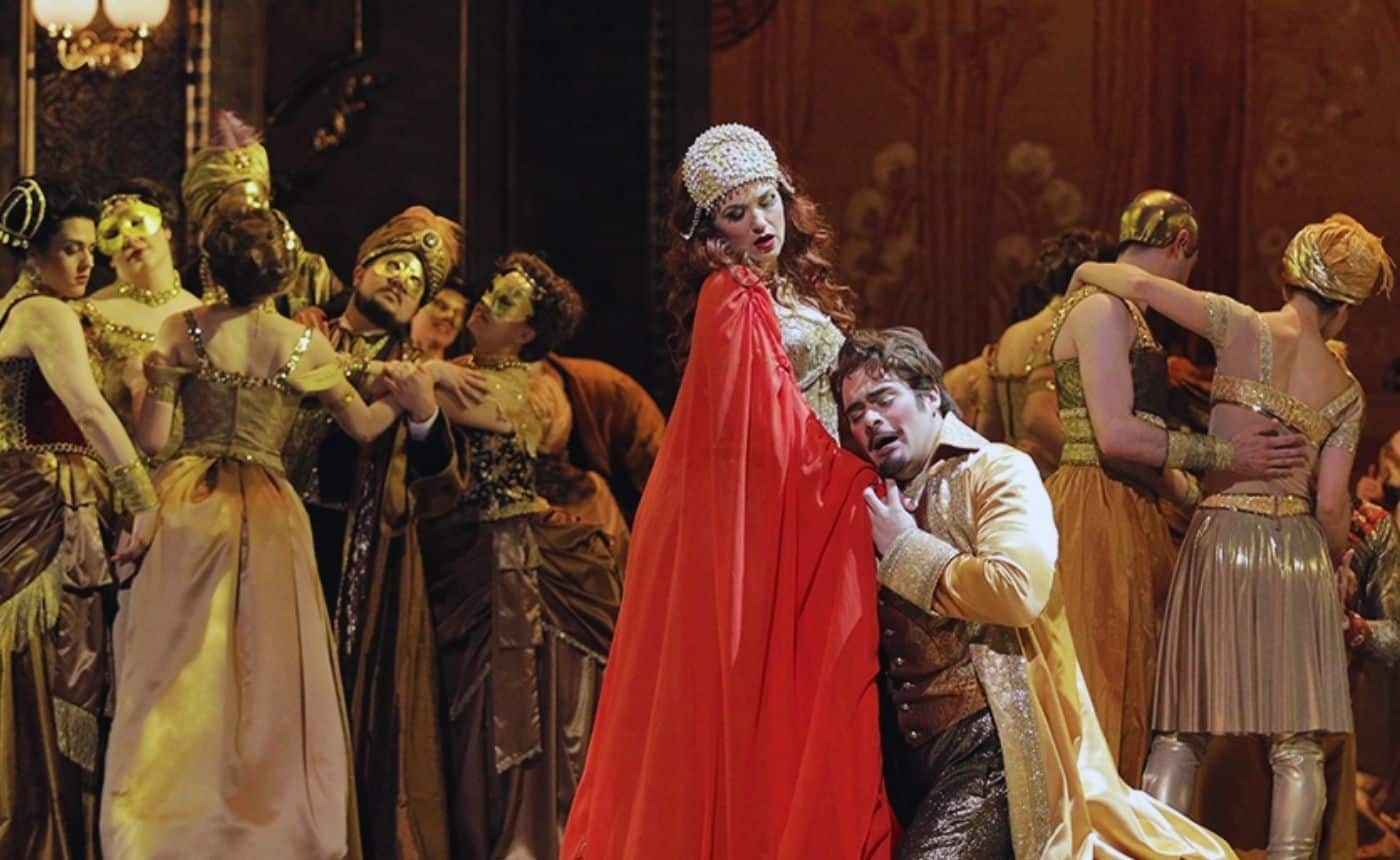Dry Humor on a Desert Island
Gentleman’s Island
Comic Opera in Two Acts
Music by Joseph Horovitz (b. 1926)
Libretto by Gordon Snell (b. “estimated between 1909 and 1969”)
We can estimate the birthdate of Gordon Snell, the witty writer of scripts and children’s books, a little more closely by noting that he is the widower of the popular novelist Maeve Binchy, having married her in 1977. Born in Singapore, he met Binchy at BBC Radio in London, where he was a producer. The quoted birth date above originates with Snell himself, establishing him as a practitioner of the “dry humor” so apt in British arts and letters: delivered with deadpan accuracy, attuned to the ridiculous, and sometimes too close to the bone to laugh at. After all, why is his age any business of ours?
Set in a location surrounded by water, Gentleman’s Island is an opera full of — or drenched in? — dry humor. We can trace the tradition of dry humor on the English stage back to Shakespeare, no doubt — everything goes back to Shakespeare — and certainly to the music hall (think of the song “Daddy Wouldn’t Buy Me a Bow-Wow” and its barbed critique of psychotherapy). Dry humor often takes aim at the preposterousness of the British class system and the manners that go along with it, as in Gilbert and Sullivan’s The Mikado. Distortion and exaggeration only serve to make the Mikado’s satire more accurate: Set in Japan, with careful attention paid to authenticity of props and wardrobe, it depicts characters who are English in every detail of their ludicrous behavior. The scenario’s contradictions only serve to magnify its English-ness. And so it is with Gentleman’s Island: two gentlemen, one a tea-taster and the other an importer of indigo for the textile industry (both positively emblematic of the English economy) are stranded together on a desert island. But as the opera opens, they have not been properly introduced; thus, daring to speak to one another would be an intolerable breach of etiquette.
Gentleman’s Island has been a popular operatic two-hander since its premiere in 1958. Its composer, Joseph Horovitz, has been acclaimed for a broad range of musical works serious and comic, including ballet and opera. And it seems likely that his family history has deepened his observation of cultural folly: His father, Béla Horovitz, was a prominent publisher in Vienna and fled to England with his family to escape the Nazis. The year was 1938, when Joseph was 12.
Joseph studied music and modern languages at Oxford, then trod the well-worn path to Nadia Boulanger’s door in Paris for advanced studies in composition. By the time he married, in 1956, he had recently served as on the coaching staff for the Mozart bicentennial at the celebrated Glyndebourne Festival Opera. He is a longtime professor of composition at the Royal College of Music, appointed in 1961.
We might expect a composer Horovitz’s background, with such serious credentials, to write only the most serious music. But on the lighter side he also has a deft touch, and has scored successes in television and the movies as well as the concert hall and the opera stage. His most frequently programmed work, Captain Noah and His Floating Zoo, is a children’s cantata.





